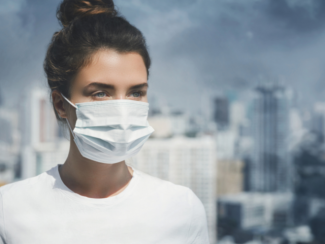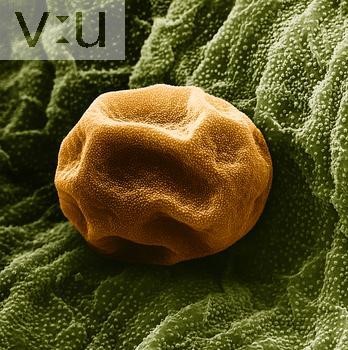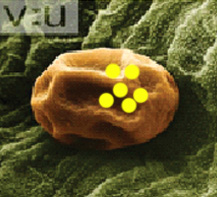
Dr. Himanshu Garg, Pulmunologist from Gurgaon talks at length about the impact of indoor and outdoor pollution on respiratory health - Asthma, Bronchitis, COPD.
Can you explain (physiologically) how the pollution directly affects health?
Pollution affects the wellbeing of lungs. The particulate matter linked with air pollution ranges from PM10 to PM2.5. These particulate matters act as a trigger and tighten the breathing tubes recognizing that they are an enemy and they need to protect them by tightening it (esp in patients who have asthma, cough variant asthma, chronic bronchitis, COPD etc). The hazardous nature of the pollution is dependent on the size of the pollutant. Smaller the size of the pollutant the deeper it resides inside the lungs to cause trouble of narrowing the diameter of the breathing tubes making it difficult for a person to breath air.

Allergen sitting in the airway. This will cause reaction in the breathing tubes.

Diesel exhausts acting as a trigger along with the allergen sitting in the airway. This will cause reaction in the breathing tubes to increase by 50 folds making it difficult for the patient to breathe.
What are some of the long term hazards of pollution on health?
As pollution affects the wellbeing of the lungs, the narrowing of the airways makes it difficult for an individual to breathe air. This phenomena is largely reversible at earlier stages. But, as time passes and the patient fails to seek medical attention, the narrowing of the breathing tubes remains fixed in a narrow state causing irreversible permanent damage to the breathing tubes.
Many studies have found that some pollutants have detrimental effects on human growth, particularly prenatal growth. The heavy metal, lead, is commonly found in human populations and is related to smaller size at birth and studies have reported decrements that range up to about 200 grams. Studies of humans exposed to polychlorinated biphenyls, one of the persistent organic pollutants, have reduced size at birth, advanced sexual maturation and altered hormone levels related to thyroid regulation. Thus different pollutants exert effects through different physiological pathways. However, some studies have not observed these effects, which indicate that the situation is complex and requires further study with better study designs. Determining the effects of pollutants on human physiology and growth is difficult as it requires fairly large numbers of subjects who are not purposely exposed but for whom exposure can be measured.
In adults, it may hamper the quality of life due to breathing difficulties and in older individuals it may cause COPD which is progressive lung disease causing multiple system occurrences (loss of muscle mass, cardiovascular disease, Hypertension, Psychiatric disorders, anxiety, sleeping disorders etc), lung cancer, recurrent chances of lung infection etc.
What are some temporary effects of pollution exposure? How can they be reversed?
Numerous scientific data have demonstrated that fine particle pollutants cause premature death in people with heart and/or lung disease including cardiac dysrhythmias, nonfatal heart attacks, aggravated asthma, and decreased lung functions. Depending on the level of exposure, particulate pollutants may cause mild to severe illnesses. Wheezing, cough, dry mouth, and limitation in activities due to breathing problems are the most prevalent clinical symptoms of respiratory disease resulted from air pollution
Which age group of people does pollution affect most?
Precisely, pollution does not affect a specific age group but may affect the children and elderly. But, certainly will affect patients with weaker lungs (due to tuberculosis or any other pre-existing lung disease), poor nutritional status, HIV patients etc.
Are the effects of indoor pollution different from outdoor pollution?
Yes, indoor air pollution is limited to larger particulate size as compared to outdoor air pollution caused by industrial waste, diesel exhaust from motor vehicles, crop burning, waste burning, construction site pollution etc
What are some ways to keep our homes pollution-free?
First and foremost the windows/doors of the homes should be closed during the peak hours of pollution, seasonal change, if the home is closer to the highways/main roads etc. You may also plant trees around the home to improve outdoor ventilation, air-purifier which filters till PM2.5 sized particulate matter. Also, do not cook food with closed windows; use exhausts while cooking food, etc.
How effective are air filters/purifiers?
Yes, it is probably effective but to what extent is not clear as we do not have any large scale studies proving the benefits of the air purifiers.
Must Read: How to Boost Immunity Against Air Pollution
What preventive measure can people with lung conditions like asthma or bronchitis take to avoid further aggravation of their conditions?
Knowledge of their disease and identification of the trigger is the most important component in patients with Asthma or Chronic Bronchitis. It is best for the patients to visit their chest specialist and ask for an Asthma Action Plan, disease management, engage in good diet and physical exercise.
What advice would you give athletes/sportsman who practice/play outdoors?
I would advice sportsman/athletes to take precautionary measures during peak episodes of pollution as well as seasonal changes while exercising outdoor. They may also involve in indoor practice during peak season of pollution or during the days where the area witnesses a poor quality of Air.
How can we protect our children & elderly from harmful effects of pollution?
This subset of population needs increased care as compared to the normal adult individuals. They should be encouraged to wear a face mask while playing or walking outdoors, optimizing ventilation in the house during preparation of food, adequate nutrition to maintain the immunity.

Dr. Himanshu Garg has extensive experience and expertise in Respiratory Medicine and Sleep Medicine.






